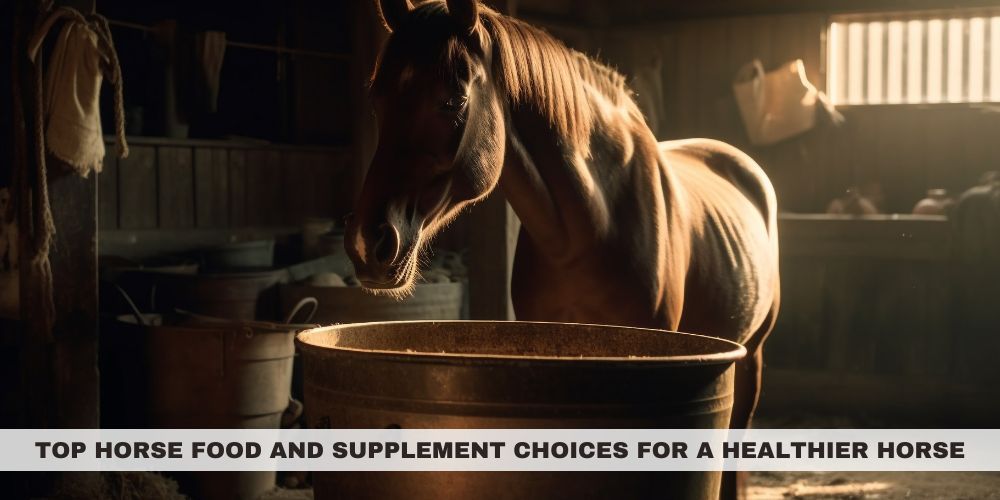Choosing the Best Calcium Supplements for Your Horse
A horse needs calcium in its diet to remain healthy and perform well. Calcium develops and maintains strong bones and muscles and participates in two metabolic processes. Proper selection will require information regarding this supplement's types, bioavailability options, and quality.
This handbook spells out the roles played by calcium in equine nutrition, stipulates various supplement options available to horses, and offers insights into dosage considerations and sourcing. Learn what to look for when choosing the best horse vitamin and mineral supplement for your horse's health and longevity.
Importance of Calcium
Calcium is crucial for physiological activities in the horse's body. It is part of its skeleton structure and teeth, allocated to form the bulk material. Without calcium, horses can have weak bones and teeth, leading to harm and eating problems.
In addition to skeletal health, calcium also affects muscular performance. It facilitates the contraction and relaxation of muscles to ensure your horse moves graciously and efficiently. The factor is vital for performance horses intended for working or competing. It's also essential for blood clotting and the activity of enzymes.
Types of Calcium Supplements
- Calcium Carbonate: A common and inexpensive form. It is derived from limestone and is very concentrated, thus providing considerable calcium per dose.
- Calcium Citrate: More readily bioavailable than calcium carbonate in the body but less concentrated.
- Calcium Gluconate: Predominantly used parenteral forms exhibit sound absorption.
- Dicalcium Phosphate: A source of calcium and phosphorus, both essential in maintaining bone health.
- Bone Meal: A natural source of calcium and phosphorus obtained from ground animal bones.
- Calcium from Seaweed: Naturally occurring bio-organic option, enriched with other minerals to improve health.
Bioavailability
Bioavailability is the extent of the quantity of food components, such as nutrients, that are digested and absorbed by an animal. Calcium supplements for horses vary significantly in their bioavailability. An example is calcium carbonate, and Its nature allows it to be best absorbed in an acidic environment. Thus, it would not be as suitable for an aging horse with low stomach acid. It indicates calcium citrate does not need such an acidic pH for absorption.
Hence, it's more readily available to horses regardless of their stomach acid levels. Think of what would go into how well the horse is going to absorb that calcium when you pick a calcium supplement.
In other words, if the supplement is more bioavailable, it can better meet your horse's nutritional needs. It may put a bigger hit on your wallet regarding supplements, but realistically, it would be more cost-effective over time due to absorption rates.
Source and Quality
First, one has to consider the source and quality of calcium supplements. You want to go with those made by well-known companies known for their high-quality standards. It would ensure that the product doesn't contain contaminants but has what its component profile,说hte claims.
The natural sources of calcium, which include bone meal and seaweed-derived calcium, should have undergone processing to eliminate any possible toxins. Some of these sources, however, have further benefits—such as seaweed-based supplements—in which extra minerals will benefit health in general and not exclusively calcium consumption.
Dosage and Administration
Establishing the proper dosage is essential to avoid deficiencies or toxicities related to calcium supplements. Several factors determine the needed dosage, including the horse's age, size, diet, and activity level. Young growing horses, pregnant or lactating mares, and performance horses require more calcium intake.
Be sure to follow the dosage amount on the product label, and if you still need clarification, consult with a vet or an equine nutritionist to double-check that you're administering the right amount to your horse. Excessive calcium in a horse's diet is highly dangerous and can result in serious problems such as calcium toxicity and kidney stone development.
Considerations
Consider, first of all, your horse's overall diet when choosing the right calcium supplement. Calcium must be in the correct ratio for proper phosphorus absorption and utilization. Look at what most term ideal in calcium: phosphorus ratio of about 2:1 in horses' diets. Take this information back into the diet to know how much phosphorus it needs and whether the supplement delivers both minerals.
It will also capture the health conditions one's horse might have. Some horses with kidney problems might require less calcium, while others may need more due to bone problems. Constantly adjust supplementation according to the animal's needs.
Conclusion
Choosing the best calcium supplement for your horse requires understanding your horse's needs and what's available on the market. You want an excellent choice for optimum horse health supplements. Look no further than American Horse Products for uncompromising quality and the best products. Such a wide selection of supplements means you will find one that will suit your horse's needs.
What makes American Horse Products stand out is the quality and efficiency—something every owner wants for their horse, a promise of good health and well-being. Trust American Horse Products for the Best horse calcium supplements at work for your equine friend's health and welfare. They also provide Vitamin E Supplements that are best for horse health.











